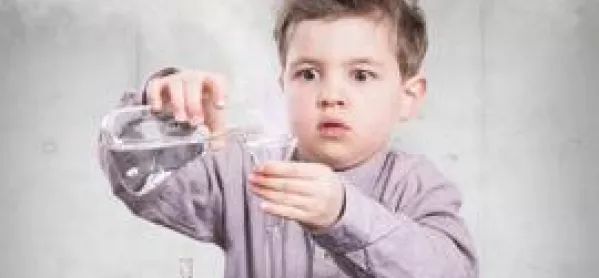
Science in primaries reaches danger point

The future of science in primary schools is being jeopardised by a lack of investment in the subject, which could even be putting pupils’ safety at risk, experts have warned.
MSPs were told this week that some primaries had spent nothing at all on science lessons in a whole school year, and that a widespread shortage of safety equipment for class experiments could be endangering students.
As prominent scientists made the warnings to the Scottish Parliament’s Education and Culture Committee, a senior Education Scotland official told TESS that many children would be lost to the subject unless teachers countered negative stereotypes about science from nursery school onwards.
In an exclusive interview, senior education officer for science Ian Menzies said that more must be done to bring positive role models, both male and female, into the classroom to attract the next generation of scientists.
Earlier this week, the committee debated the findings of a recent survey by the Learned Societies’ Group on Scottish Science Education (bit.lyScotlandScience). The report concludes that current funding for the subject is “not sufficient to fully and effectively meet the requirements of the curriculum”.
It reveals that Scottish primary schools spent an average of pound;1.62 per pupil on science in 2013-14, just over half the average spend in English primaries two years earlier. “A number [of schools] indicated that their per capita science spend in 2013-14 was nil,” the report continues. Almost all the primary and secondary schools surveyed said they relied on external funding for practical work.
The report also found that almost half (45 per cent) of the 39 primary schools who took part in the survey reported having no access to safety equipment or “an appropriate resources area”.
Stuart Farmer, head of physics at Robert Gordon’s College in Aberdeen and a representative of the Institute of Physics and the Association for Science Education Scotland, said: “I am personally quite alarmed that so many primary teachers seem to be quite forthcoming that they didn’t have adequate health and safety.”
SNP MSP Gordon MacDonald called for schools that failed to provide adequate safety equipment to be reported to local authorities to ensure the safety of their pupils.
But Greg Dempster, general secretary of school leaders’ body AHDS, pointed out that there had been a “very significant” 21 per cent increase in primary schools’ science spending between 2012-13 and 2013-14, with a further 13 per cent rise anticipated this year.
Concerns were also raised that no science qualification was required to teach the subject in primary schools. Professor Sally Brown, chair of the Learned Societies’ Group, said efforts had been made to persuade the General Teaching Council for Scotland that it should demand better science credentials from student primary teachers.
Dr Liz Lakin, a council member of the Society of Biology and a life sciences lecturer at the University of Dundee, told the committee that the amount of science taught in primaries amounted to a “lottery”, depending on the subject expertise in each individual school.
But speaking to TESS, Education Scotland’s Mr Menzies insisted that the subject’s standing was improving after the appointment of a dedicated development officer for primary science in 2013. He also cited funding made available by the Scottish government for training primary science “mentors”. A report published by the University of Glasgow last year said that the initiative had been “very effective”.
Mr Menzies said that good teaching at an early age was crucial in order to dispel common stereotypes, such as the belief that you needed to be “super brainy” to study science or that it led only to a narrow range of careers.
“We want to make sure that children aged 3 are starting to learn about those careers. When they’re playing in the corner of a nursery and pretending to doctors and nurses, we also want them to pretend they’re engineers and scientists,” he said.
Mr Menzies also cautioned schools against “inadvertent discrimination” that could deter girls from studying the subject, such as displaying classroom posters featuring only male scientists. Education Scotland wanted to encourage science undergraduates to visit primary schools in order to offer role models for pupils, he said.
The senior science officer paid tribute to the success of special “writing groups” set up a year ago in response to teachers’ concerns about the new National qualifications. These have allowed teachers from all 32 local authorities to collaborate with peers across Scotland. The 10th working group event was held this month.
Register with Tes and you can read five free articles every month, plus you'll have access to our range of award-winning newsletters.
Keep reading for just £4.90 per month
You've reached your limit of free articles this month. Subscribe for £4.90 per month for three months and get:
- Unlimited access to all Tes magazine content
- Exclusive subscriber-only stories
- Award-winning email newsletters
You've reached your limit of free articles this month. Subscribe for £4.90 per month for three months and get:
- Unlimited access to all Tes magazine content
- Exclusive subscriber-only stories
- Award-winning email newsletters



